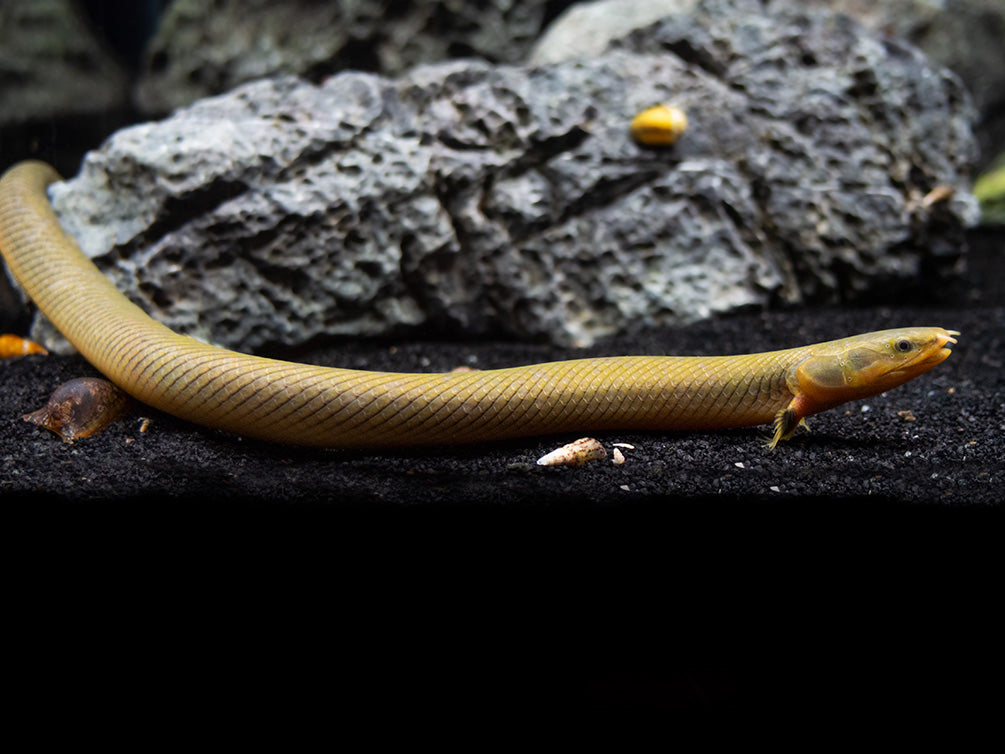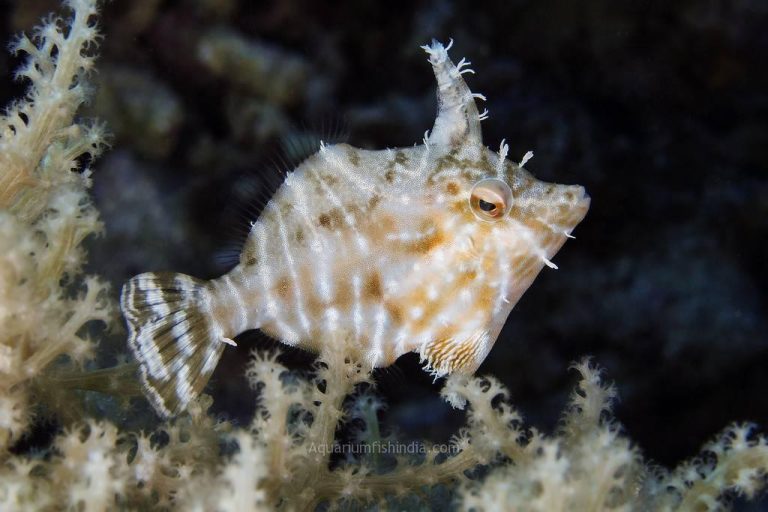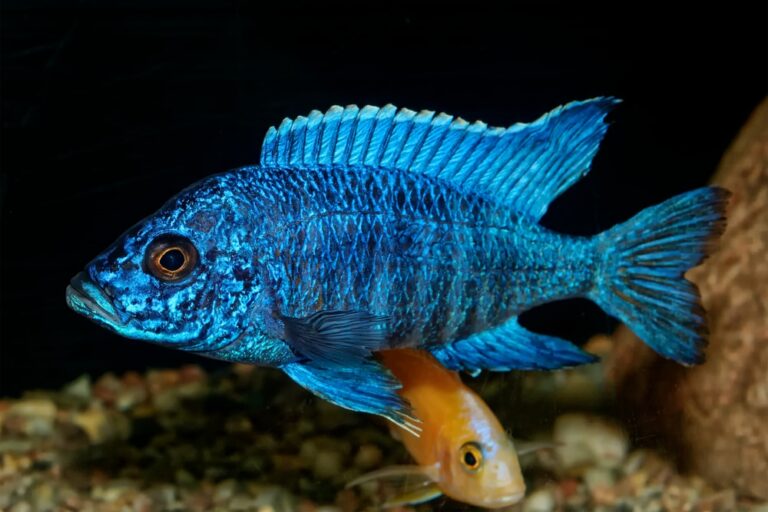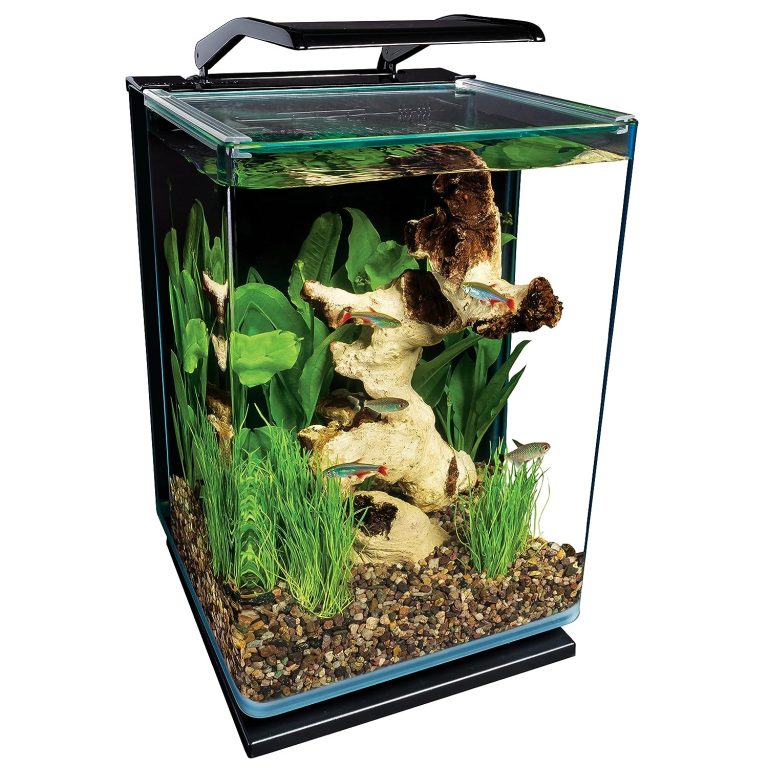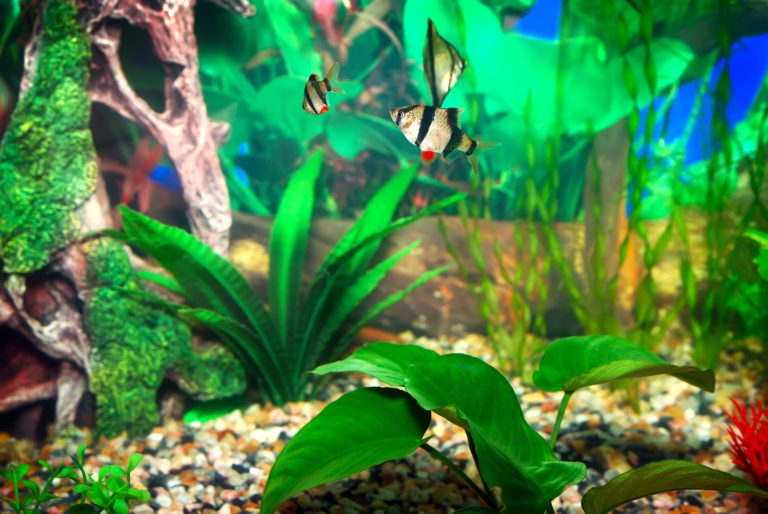Can Guppies Survive with Rope Fish? All Your Questions Answered
Yes, rope fish will eat guppies. Rope fish, also known as reed fish or snakefish, are an interesting addition to any aquarium due to their unique appearance and behavior.
However, if you also have guppies in your aquarium, it is important to note that rope fish are opportunistic carnivores and may eat smaller fish such as guppies. Therefore, it is important to carefully consider the compatibility of any fish before adding it to your aquarium community.
Additionally, rope fish are known to be escape artists, so a secure lid on the aquarium is essential. Despite their potential to eat smaller fish, rope fish can be fascinating to observe and a wonderful addition to a well-planned aquarium setup.
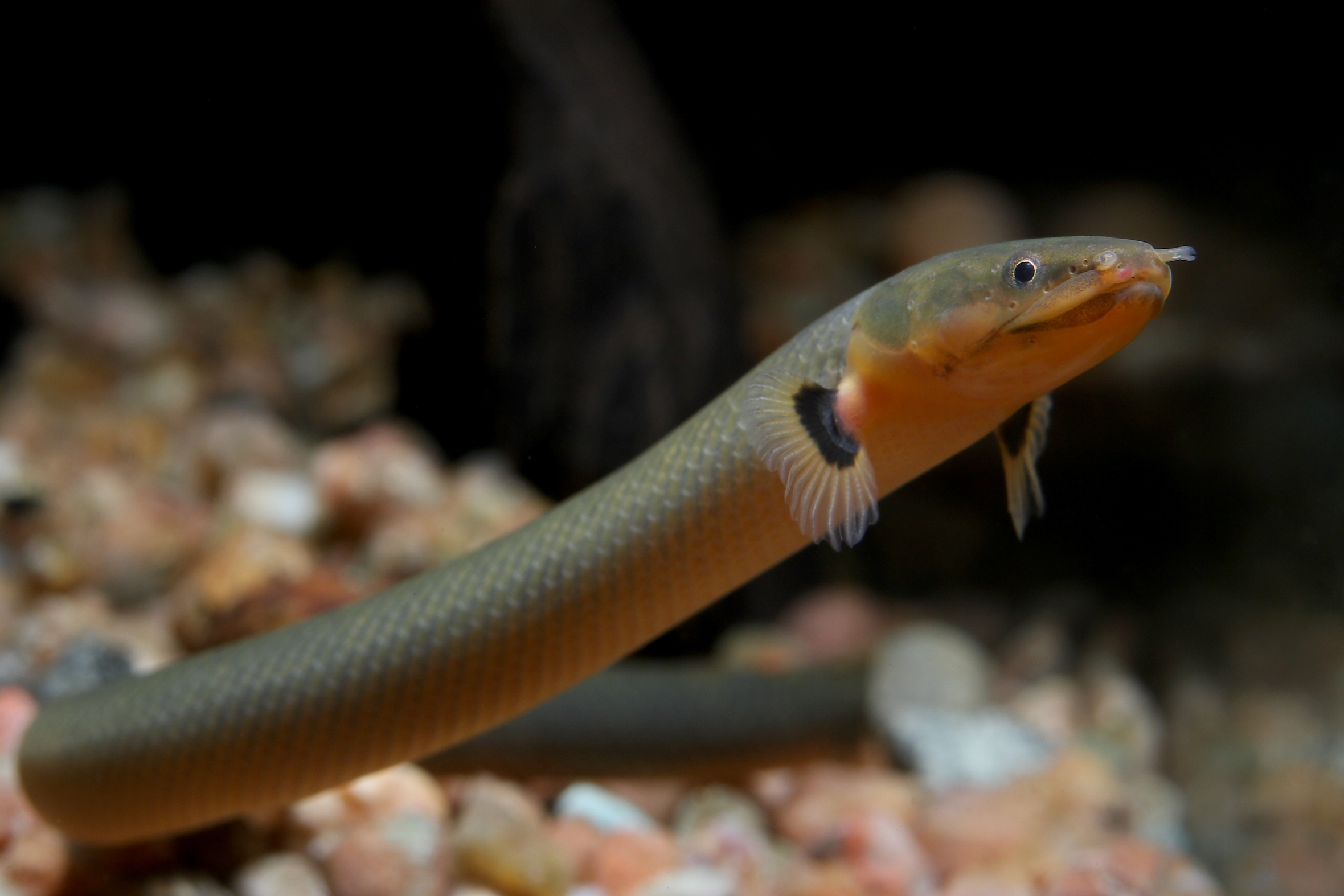
Credit: fishkeepingfans.com
Characteristics Of Guppies And Rope Fish
Guppies and rope fish are two popular but different species of aquarium fishes. Understanding their characteristics will enable you to determine their compatibility as tankmates. Here are some distinct features of both species:
Physical Appearance Of Guppies And Rope Fish
- Guppies:
- Brightly colored and typically two inches long
- Females have rounded bodies while males have thin and elongated bodies
- Display patterns such as leopard, tuxedo, and cobra
- Rope fish:
- Elongated and snake-like appearance, typically 2-3 feet long
- Brown-colored scales with horizontal black stripes
- Possess a dorsal fin and head that resembles a snake
Behavioral Patterns Of Both Species
- Guppies:
- Active swimmers, fast and playful
- Jumpers, especially when mating or stressed
- Males show a tendency for aggression towards other males during feeding or when creating territories
- Rope fish:
- Sluggish and nocturnal in nature
- Predatory, with the ability to eat any fish it can fit in its mouth, including guppies
- Require hiding spaces and lots of space to move around
Differences In Water Temperature And Ph Level Requirements
- Guppies:
- Prefers water with a ph level of 6.8-7.8 and a temperature of 72-82°f
- Tolerates fluctuation in ph and temperature but can become stressed with sudden changes
- Rope fish:
- Prefers water with a ph level of 6.0-7.5 and a temperature of 75-82°f
- Sensitive to changes in water parameters and needs consistent monitoring
While guppies and rope fish are popular aquarium species, their distinct characteristics and behavior patterns may make them incompatible as tankmates. Therefore, it’s crucial to research and understand the specific needs of each species before introducing them to your aquarium.
Factors Impacting Compatibility
Will Rope Fish Eat Guppies?: Factors Impacting Compatibility
Have you been considering adding rope fish and guppies to the same aquarium, but not sure if they are compatible? Here are some factors to consider before making a decision:
Tank Size And Available Space Within The Aquarium
- Rope fish are known to grow quite large, up to 40 inches in the wild, so they need plenty of swimming space.
- Ideally, a tank of at least 75 gallons should be considered for rope fish.
- Guppies, on the other hand, require a smaller amount of space. Roughly, they need about 2 and a half gallons minimum per fish, but more is always better.
- Make sure to provide hiding places for the guppies, as rope fish can become aggressive if they feel threatened or territorial.
Variations In Diet And Feeding Patterns Of Both Species
- Rope fish are carnivorous, feeding on small fish, crustaceans, and insects in the wild. They require protein-rich diets, consisting of live or frozen foods like brine shrimp, bloodworms, and small pieces of fish.
- Guppies are omnivores and thrive on a varied diet of flakes, pellets, and occasional small live or frozen foods
- Make sure to feed the rope fish and guppies separately to prevent competition and avoid having the rope fish snack on their tank mates.
Predatory Instincts Of Rope Fish Towards Smaller Fish
- Rope fish have predatory instincts and will eat smaller fish if given the chance.
- Although they may not initially consider guppies as potential prey, it’s best to err on the side of caution.
- Especially younger rope fish are more prone to aggressive predation of smaller fish, so it’s not uncommon for them to eat guppies.
While rope fish and guppies can live in the same aquarium, it’s essential to take the above factors into consideration. Make sure to provide a large enough tank with adequate space and hiding places, offer a varied diet, and ensure that feeding is done separately.
Ultimately, it’s up to you to decide if you’re willing to take a chance on these creatures coexisting in your aquarium.
Case Study: Observing Guppies And Rope Fish Coexisting
Will Rope Fish Eat Guppies?
Guppies are a popular species for home aquariums due to their bright colors and ease of maintenance. However, some aquarists are hesitant to keep guppies with other fish species, particularly rope fish, due to concerns about predation. In this section, we’ll examine a case study of observing guppies and rope fish coexisting and explore the following h3 headings.
Detailed Analysis Of Actual Aquariums With Guppies And Rope Fish Cohabiting
The cohabitation of guppies and rope fish is not uncommon in aquariums. In examining actual aquariums with both species cohabiting, we found the following points:
- The size of the aquarium plays a significant role in successful cohabitation. A larger tank with plenty of hiding places and spaces to explore provides the guppies and rope fish with enough room to live together without competing.
- When adding both species to a shared tank, the rope fish should be introduced first. This gives them a chance to establish their territory and reduces the chances of aggression toward the guppies.
- The use of cave-like structures and plants can provide the guppies a safe place to hide and reduce stress. This can be a game-changer in setting up an environment for peaceful cohabitation.
Behavioral Patterns Observed Among Both Species In A Shared Environment
For guppies and rope fish to coexist, we need to know their behavioral patterns. Based on our observations of both species in a shared environment, we came up with the following:
- Rope fish are primarily nocturnal and tend to rest during the day. Still, they may become more active when fed or during breeding periods.
- Guppies, in contrast, are active during the day and tend to swim in open water.
- Guppies are more likely to school when there’s a potential threat, such as a predator. In contrast, rope fish swim alone, reducing the likelihood of aggressive behavior towards the guppies.
Examples Of Successful And Unsuccessful Cohabitation And Why
The compatibility of guppies and rope fish depends on multiple factors and can result in both successful and unsuccessful cohabitation; here, we’ll look at a couple of examples of each:
- Successful: An aquarium with a minimum of 55 gallons, featuring ample hiding space and cave-like structures. The rope fish were introduced first, and the guppies were added several weeks later. The guppies adjusted well, schooling around the rope fish and avoiding confrontations. Providing enough room is the key takeaway for a happy cohabitation.
- Unsuccessful: In an aquarium with limited space, a guppy was added to an established tank containing a rope fish. The rope fish immediately responded aggressively towards the guppies, resulting in the guppy’s quick death. Though this is a rare occurrence, this example highlights the importance of understanding the behavioral patterns of both species before adding them to a shared environment.
Guppies and rope fish can cohabit successfully under the right conditions, including a large tank, enough hiding places, and consideration of the species’ behavioral patterns. By following the tips we outlined aquarists can create a peaceful and colorful environment for their aquariums’ inhabitants.
Tips For Keeping Guppies And Rope Fish Together
If you’re considering keeping guppies and rope fish together, you may be wondering if rope fish will eat guppies. The good news is, rope fish are not typically aggressive towards other fish species unless they can fit into their mouths.
While it’s possible for rope fish to eat guppies, there are some things you can do to ensure everyone in the tank lives peacefully together.
How To Properly Introduce Guppies And Rope Fish To A Shared Tank:
- Before introducing guppies to a tank with rope fish, it’s important to ensure the rope fish are well-fed and not hungry enough to view smaller fish as a potential food source.
- Introduce guppies slowly to the tank, allowing the rope fish to become accustomed to their presence over time.
- Keep in mind that rope fish are nocturnal, so it may be best to introduce guppies during the day when the rope fish are less active.
- If you notice any aggressive behavior from the rope fish towards the guppies, such as chasing or nipping, it may be best to separate them.
Maintaining An Appropriate Tank Environment To Promote Healthy Cohabitation:
- Ensure the tank is large enough to accommodate both guppies and rope fish comfortably.
- Provide hiding places in the tank for guppies to retreat to if they feel threatened.
- Keep the water parameters in check, including temperature, ph, and water quality, to ensure both guppies and rope fish thrive.
- Avoid overcrowding the tank, as this can increase stress levels for both guppies and rope fish, leading to aggressive behavior.
Safe Housing Options For Smaller Guppies In A Tank With Rope Fish:
- Consider adding a separate breeding tank for guppies if you’re concerned about them being eaten by the rope fish.
- Use breeding boxes or nets to protect smaller guppies from being chased or eaten by the rope fish.
- Provide plenty of plants and decorations in the tank to create hiding spaces for smaller guppies.
By following these tips, you can successfully keep guppies and rope fish together in the same tank while minimizing any potential risks to the safety of the guppies. With proper care and attention, both species can live harmoniously together, adding beauty and diversity to your aquarium.
Frequently Asked Questions Of Will Rope Fish Eat Guppies
Do Rope Fish Eat Guppies In The Wild?
Yes, rope fish are known to eat small fish like guppies in the wild.
Will Rope Fish Eat Guppies In A Home Aquarium?
Yes, rope fish will eat guppies in a home aquarium if they are small enough to fit in their mouth.
What Can I Do To Protect My Guppies From Rope Fish?
You can protect your guppies by providing hiding spots and keeping them in an aquarium with fish of similar size.
Are Rope Fish Aggressive Towards Guppies?
Rope fish are not inherently aggressive towards guppies, but they may eat them if they are hungry or if the guppies are small enough to fit in their mouth.
Conclusion
Considering the above-mentioned information about the rope fish and their dietary habits, it is safe to assume that they will devour guppies if given the opportunity. Rope fish can be a great addition to your aquarium due to their unique appearance and interesting behavior.
However, if you already have guppies in your aquarium, it is best to approach with caution. You can try adding a divider or a separate tank for the guppies if you wish to house them alongside your rope fish. Always make sure to feed your rope fish a varied diet consisting of pellets, worms, and other small aquatic animals, to keep them healthy and satisfied.
Proper and careful planning is the key to a beautiful and harmonious aquarium, where all species can thrive in their respective environments. So make sure to do your research beforehand to maintain a peaceful and thriving aquatic community.
